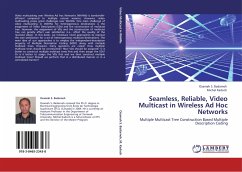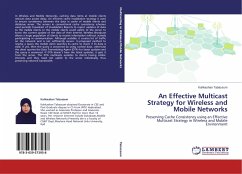A MANET is composed of mobile nodes with no pre- established infrastructure; thus, at each instance, the mobile nodes form a temporary network. This network can be very useful in a wide variety of areas, from a battlefield to a conference room. Multicasting is a process of delivering information amongst a group. When we combine MANET and multicasting, we get a network, where each mobile node is connected in an ad hoc fashion and some of the mobile nodes form a cohesive group. Energy conservation is a big issue with the wireless network and even a bigger one with MANET. A transceiver's operating mode decides the energy consumption for an interface. There are four major operating modes: Transmit, Receive, Idle, and Sleep. Among these four modes, Sleep consumes the least amount of energy as an interface can neither transmit nor receive in this mode. In this research a new multicast protocol for MANET is suggested, which is designed to conserve energy by efficiently using the Sleep mode of transceivers.
Bitte wählen Sie Ihr Anliegen aus.
Rechnungen
Retourenschein anfordern
Bestellstatus
Storno








